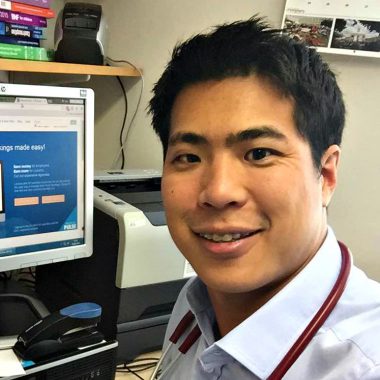With ever increasing workload in primary care, GP practices are employing more locums than ever before. On average, GP locum usage has increased by 19.6%, data from a locum website has revealed.
My online locum website RLocums.com [www.rlocums.com], released figures from our 5,500-strong membership, finding that practices booked an average of 110 hours of locum work on the website in 2014/15 compared with 92 hours in 2013/14.
I think that this has been a tough year for General Practice. Increased workload has prompted more GPs to retire early or resign from their salaried/partnership post. Some GPs are even thinking about emigration. This has contributed to a higher demand for locum GPs. On top of this, new GP graduates prefer to locum due to the attractive pay, quality of life and reduced paperwork responsibilities.
This year, we have also seen an increase in the number of career locums – these are GPs who in the past may have aspired to become partners or have the stability of salaried positions – now preferring to work full-time on a freelance basis. This may be because it is now easier to fill your calendar with sites like RLocums, so finding enough locum work to give a stable income is no longer a concern. Moreover, I think people genuinely enjoy the freedom and flexibility that being a locum brings.
The company has found that despite a minor increase of 1.6% compared to 2014, average GP locum rates across the UK have remained broadly the same at £83.69/hr.
More GPs are choosing to supplement their salaried/partnership income with locum work. RLocums data reveal that on average GPs earn £7,600 per year doing additional locum work, an increase of £1,900 (33%) compared to last year.
When RLocums surveyed GPs on the ground one locum from London said ‘It’s never been a better time to be a sessional or locum GP.’
Others members told us they had resigned from a partnership due to excessive workload, and one who cited 16-17 hour days now works as a part-time locum and easily finds enough work.
Previously becoming a locum did not guarantee GPs a steady income, but nowadays the demand for locums is so high that this is no longer an issue.
One locum using our website commented yesterday that they could fill their diaries three times over if they wanted.
Another reason GPs hesitate to become locums is that it’s more difficult to get involved in CCG and other work such work. Locums tend to get left out of the loop and this is an area that still needs to be improved.
And it’s hard work moving from workplace to workplace. Some practices are better than others but some might be quite chaotic. Some practices are very nice and they make you cups of teas but whereas others just expect you to fend for yourselves – you can feel less like you are a part of a team.
This is likely why locum groups are becoming increasingly popular. In professional groups such as the one I lead in Brighton, you can give each other peer support, discuss cases and have monthly meetings – valuable to all of us. Still, it can take time to get used to the way a particular practice works.
Never the less, like many other GPs I believe that the trend for career locum work will continue as a way of improving work/life balance. Jeremy Hunt needs to be careful not to alienate the profession over the next 12 months: the latest GP-bashing headlines in the media, such the recent one about disciplining GPs for over-prescribing antibiotics, have been unhelpful and demoralising.
If I had to make a prediction for the next 12 months, I’d guess that working conditions for partners and to some extent salaried GPs will continue to deteriorate. This will continue to damage morale and the recruitment crisis will continue.
At some point the Government will realise that general practice is actually very cost effective and decide to invest more – this will then improve the situation again.
But until then, I don’t see this trend towards locum work abating.
Dr Steve Leung is a GP in Brighton and medical director and founder of RLocums.

















